Nestle probably required such shock treatment as the June 2015 ban on Maggi noodles to jerk it out of its ennui, suggests Suresh Narayanan, now chairman and managing director of Nestle’s India business.
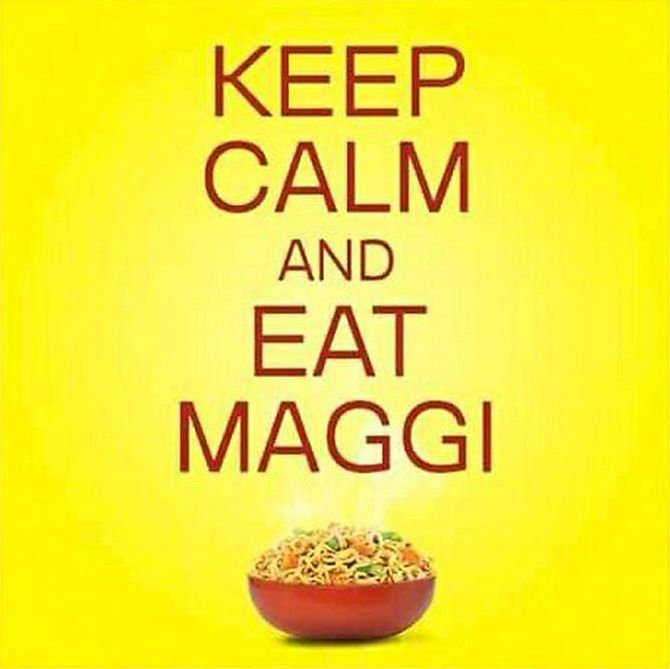
Some time in the late afternoon of May 17, Nestle India's stock was trading at Rs 9,865 a piece at the Bombay Stock Exchange.
The price was nearly the double the low point it touched since a crisis that seriously threatened the company in 2015. That was when a panicky government, spooked by allegations of contaminants in Maggi instant noodles, imposed a country-wide ban on Nestle's crown jewel.
Last fortnight's stock market performance -- the highest price since Nestle listed on the Indian bourses in 1996 -- saw the company briefly enter the league of top 30 most valued listed entities on BSE (based on market capitalisation).
In other words, the company had bounced back from the biggest existential threat in its 104-year history in India. 
A month earlier, Nestle India released the annual report for the year 2017 (the food and beverages major maintain a January-December format). It revealed, among other things, that the firm had managed to grow volumes in all four product categories for the first time since 2010 -- milk products & nutrition, prepared dishes & cooking aids, beverages and chocolates & confectioneries -- grew.
Milk products & nutrition, the largest in its kitty accounting for 47 per cent of topline, grew by 1.6 per cent for the first time in the last six years. Nestle had entered the local market in 1912 with trading rights for its breast milk substitutes and continues to exert its dominance over the Rs 45.1 billion market with more than 60 per cent value market share (according to Euromonitor International).
But the category -- represented by iconic brands like Lactogen, Nan Pro, Nestogen and Cerelac -- has been a major pain point for the Swiss multinational in one of its oldest emerging markets. Frequent price increases (often in every quarter) between 2010 and 2012 to compensate for poor growth in volume not only cost it significant market share but raised doubts about Nestle's capability to grow beyond its Maggi portfolio.
According to Euromonitor International, Nestle lost 2.1 percentage points share of the baby food market between 2014 and 2016 -- from 64.8 percent to 62.7 percent.
The second largest category -- mainly represented by the Maggi range -- has been the only growing category for Nestle. But growth rate was falling steadily -- at least since 2010 -- from over 30 per cent in 2010 to 3.7 percent in 2014. While it had remained the only growing category till the time, the Maggi crisis in 2015 brought it to a halt with sales plunging 59.5 per cent during the year.
Performance of the other two categories -- beverages (includes powdered products like Nescafe and Nestea) and chocolates & confectioneries -- remained subdued with volumes falling frequently. But all was probably not over for Nestle.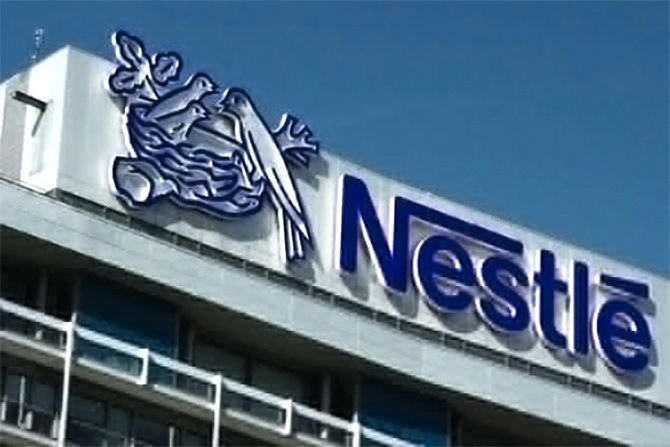
Suresh Narayanan, now chairman and managing director of Nestle’s India business, often reiterates the importance of the Maggi fiasco in the firm’s journey. “It is a blessing in disguise,” he says. An old guard in the business with set agendas and values, Nestle probably required such shock treatment to jerk it out of its ennui, he suggests. The 2015 tragedy that exposed Nestle to public scrutiny and placed the firm in a vulnerable position did just that.
Maggi noodles was banned in the country in June 2015, Narayanan took charge in August, relinquishing a three-month stint in Nestle Philippines. His proven track record in a tough market like Egypt, where he was located during the Arab Spring, had probably worked in his favour.
Nestle India, since then, has not only shed its inclination of being a ‘closed company’ when it comes to revealing its business activities beyond regulatory filings, it has also adopted fast to the changing realities of the market here. 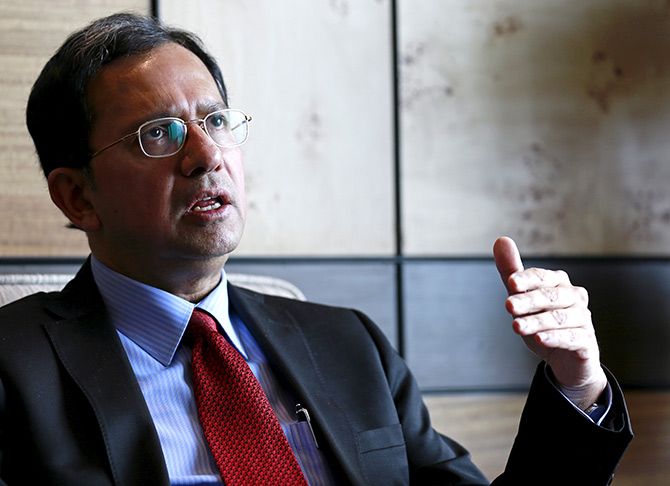
From a high point of a 78 per cent market share in the Rs 38 billion branded noodles market, the Maggi crisis left the market open to competitors like ITC’s Yippee and Nissin’s Top Ramen and allowed aggressive players like Patanjali to enter the space with cheaper products in late 2015.
When the ban was lifted, Nestle restarted from scratch. Since then it has launched over a dozen products under the brand that have helped it regain much lost ground, and in 2017 contributed over Rs 26 billion to its topline with over 60 percent value share of the instant noodles market. Value added products in the instant noodles and pasta market have aided growth.
The renewed vigour is reflected in the fact that new products launches (over 45) now contribute over a fifth of its growth, says Narayanan. Market research firm Edelweiss Securities observed that at the end of the quarter ended March, “Nestle has been posting sustained volume-led growth across product categories fueled by new product launches”. 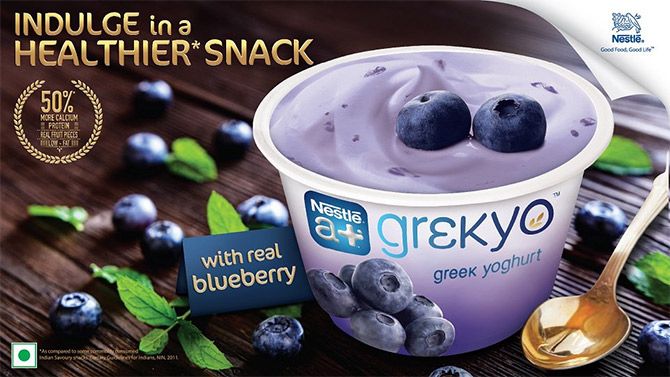
Nestle's bounce-back appears durable too. In the quarter ended March, 2018 “domestic sales remained strong (up 10.9 per cent year on year), primarily led by higher volumes across categories. Nestle’s domestic growth was comparatively better than the growth reported by other large FMCG players this far for the quarter,” analysts from Edelweiss said in May/
Benign raw material prices have certainly helped the firm’s finances during the past few quarters, Narayanan is willing to share the credit with Nestle’s changed attitude.
“Today I see an attitude and mindset of growth. There is an instinct (to grab) growth opportunities among people working across verticals. Part of this is reflected in our new motto of growth through innovation and renovation,” he said. Earlier it used to take some two years to come up with a new product; now the time has been cut to less than six months.
“In the past we have had periods of rapid launches but could never sustain the momentum," he added. 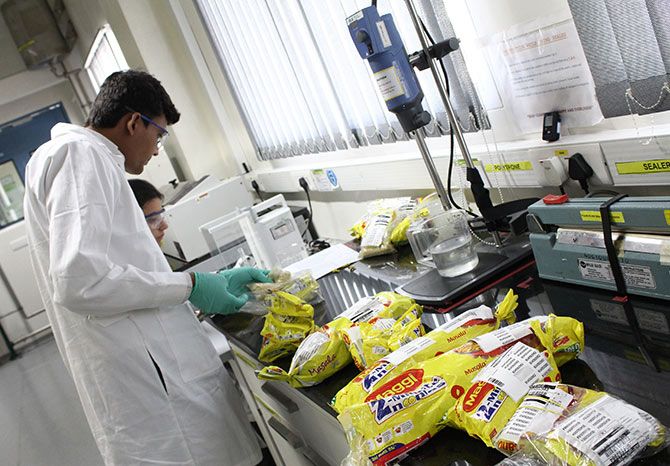
To increase focus on the market, Nestle has decentralised the decision-making process by creating 15 verticals that now target specific geographies with their respective hyper-local strategies.
Other than expansion of its presence in different FMCG categories, expansion of its retail reach has also helped, he says. The Maggi crisis had reduced the number of retail outlets selling Nestle products to 3.2 million at its peak, from 5 million. Over the past two years, the number has been increased to 4.3 million. And further cost rationalisation on the distribution front has added to its margins.
New categories like breakfast cereals, ready-to-drink cold beverages and food supplements are growing at a higher-than-average industry rate. The Maggi crisis, thus, is well and truly a distant nightmare.











